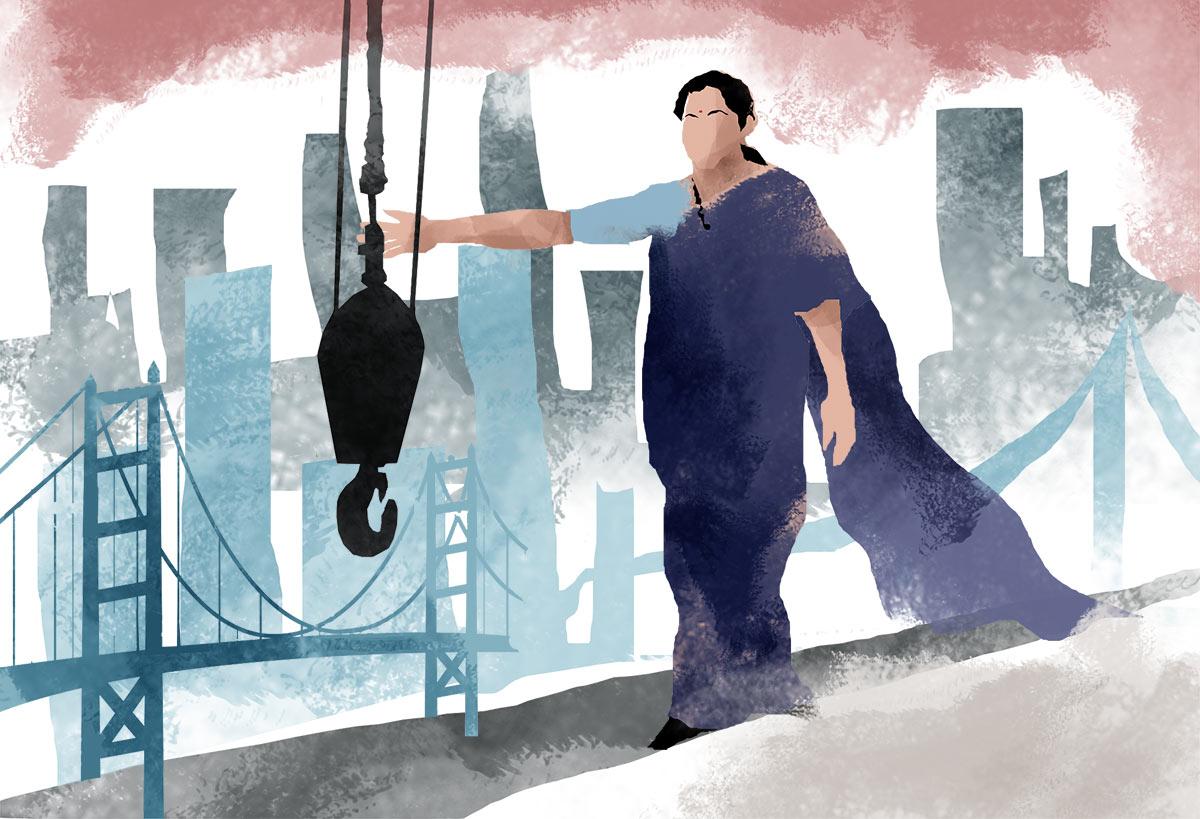‘Economy needs animal spirits’

‘Kindling the private sector’s animal spirits is more important than focusing on how government can give jobs on its own.’
“Government needs to focus all its might on ensuring strategic divestment is complete, so that will give confidence to market participants that government is utilising its large electoral mandate to push through this ‘reform’,” Harish Krishnan, executive vice president and fund manager, Kotak Mahindra Asset Management Company, tells Prasanna D Zore/Rediff.com.
How would you rate the Budget?
The positives of the Budget are three-fold: One, relaxation in fiscal deficit glide path suggests that the government is focused on doing its bit of spending in an economy whose recovery is still nascent.
Second, there has been no tinkering of taxes broadly so that consumers can spend and help in revival of the economy.
The third positive is rationalisation of expenditure towards more capacity augmentation in sectors like healthcare, roads, railways and other physical infrastructure.
For sure, there is no free lunch.
These positives are coming with a slightly higher deficit and borrowing programme, which has led to small spike in bond yields.
How realistic is the fiscal deficit target of 6.8 per cent of GDP for 2021-2022?
The transparency of fiscal deficit has improved materially with many off-balance sheet borrowings and guarantees by various government entities like FCI etc. coming into the Budget.
While any Budget exercise is subject to assumption of economic recovery and non-tax sale of assets, we think the increased transparency has gone down well with most economy watchers.
While assumptions on tax revenues seem realistic, it is the execution of divestment that needs to be seen — especially strategic divestment needs to be evaluated.
Under what circumstances could this ballooning fiscal deficit — given the estimate of 3.5 per cent for 2020-2021 which shot up to 9.5 per cent due to the COVID-19 pandemic — stoke inflation or lead to an increase in interest rates?
Across the world, fiscal deficits have risen, as economic activity declined and government expenditure (be it for welfare or healthcare spends) have increased manifold.
I think focusing on FY21 fiscal deficit is water down the bridge; what needs to be focused on is economic recovery and deficit glide path in future.
Globally, as services (like tourism, schools, entertainment, eating out) are still shut or significantly down, all consumption has focused on goods.
And given that goods consumption increases the consumption of all commodities, we have seen a global spike in commodity inflation. India will also see this inflation.
Once vaccination rolls out, and normalcy returns over the coming years, services will again dominate spending and thus global commodity spike will ease.
One cannot control this inflation spike, what is under our control is facilitating global investors to invest in our bonds through inclusion in global bond indices, and some deft manoeuvring by RBI to control yield curve.
While the stock markets surged ferociously on one hand, the surge in bond yields by 17 basis points indicated some nervousness in the debt market.
Will the government’s borrowing programme likely crowd out private investments? If yes, why? If no, why?
Liquidity is abundant and in search of assets to deploy globally. Entry into global indices will thus facilitate investment by foreign investors into Indian debt.
This will likely reduce the crowding out impact that a larger borrowing programme will entail. Also, execution on non-tax revenues is very important to give investors comfort that government will walk the talk when it comes to execution of its divestment programme.
What gives confidence to the finance minister to expect a tax buoyancy in the economy? How strong will be the economic recovery going ahead?
On a two-year basis, when we look at assumption of tax revenues, we don’t see any aggressive assumptions. However, the base case is that we see progressively improving economic activity without any lockdowns etc.
The economy needs animal spirits to come back for investment to start — be it in real estate sector or in private capex.
Increased government spending and consumption normalising can take things only so far. In this regard, incentives like tax cut, PLI incentives that aim to improve Make In India or be part of global supply chains are all key enablers for catalysing animal spirits.
The finance minister also proposed to raise as much as Rs 1.75 lakh crore from divestment of non-strategic PSUs and land banks but the government’s last year’s track record doesn’t give much confidence.
Against the budgeted divestment target of Rs 2.1 lakh crore for 2020-2021, the government could raise only Rs 20,000 crore.
Yes, execution of divestment programme has been impacted due to COVID-19. Government needs to focus all its might on ensuring strategic divestment is complete, so that will give confidence to market participants that government is utilising its large electoral mandate to push through this ‘reform’.
Are you happy with proposed capital expenditure of Rs 5.54 lakh crore and a 137 per cent hike in healthcare outlay? What kind of employment generation could this money create given the state of joblessness in the economy?
We need to understand that unlike most countries, we have a small size of government.
Our private sector is large and therefore kindling their animal spirits is more important than focusing on how government can give jobs on its own.
With almost 85 per cent of government expenditure locked in non-discretionary spends like interest, salaries, admin costs, etc, the elbow room for the balance to be spent on capital expenditure is quite limited. In that context, the larger allocation is welcome.
Other steps to bring FDI, capital outlays by private sector, facilitating credit growth will all go a long way to improve investment outlook.
- Budget 2021
Source: Read Full Article

